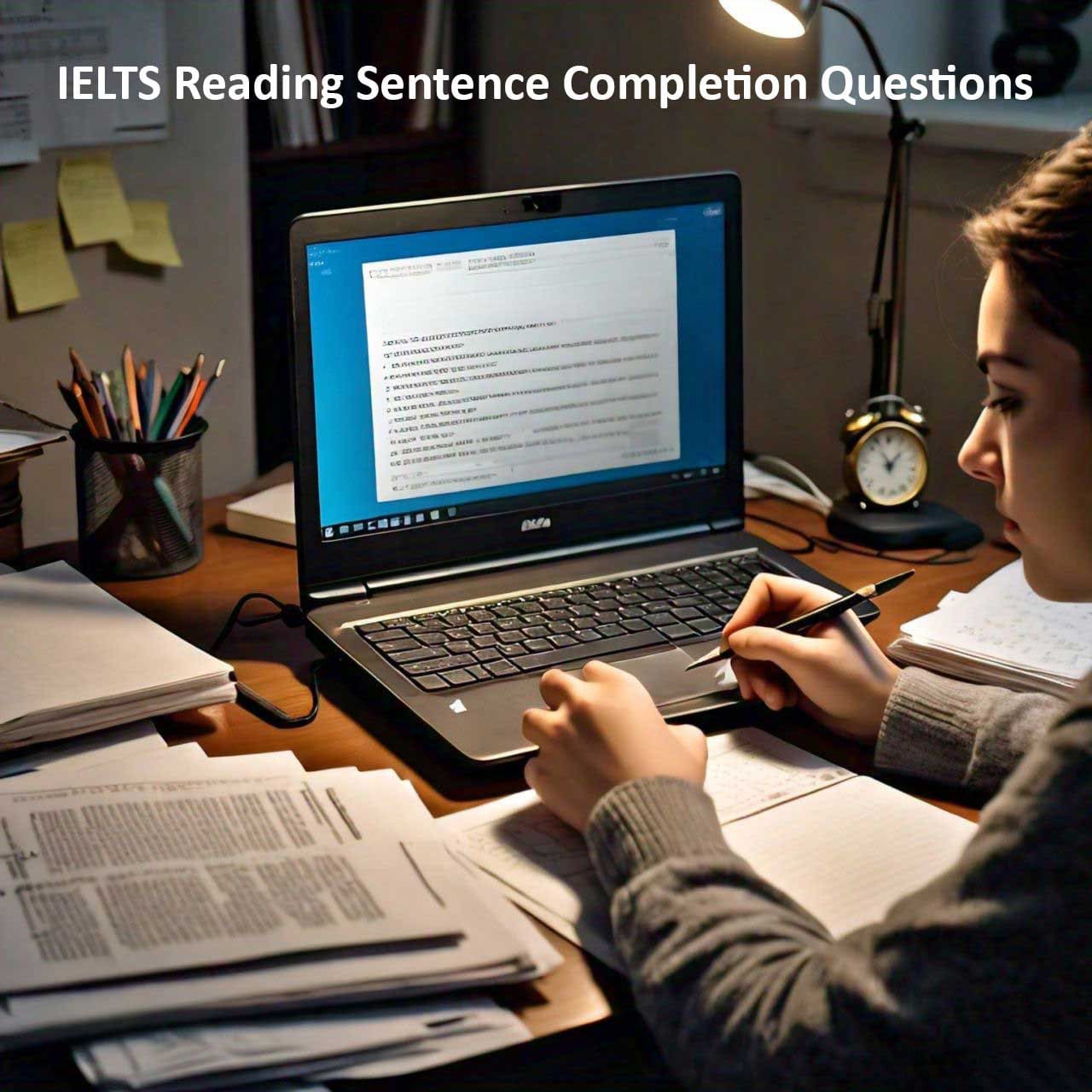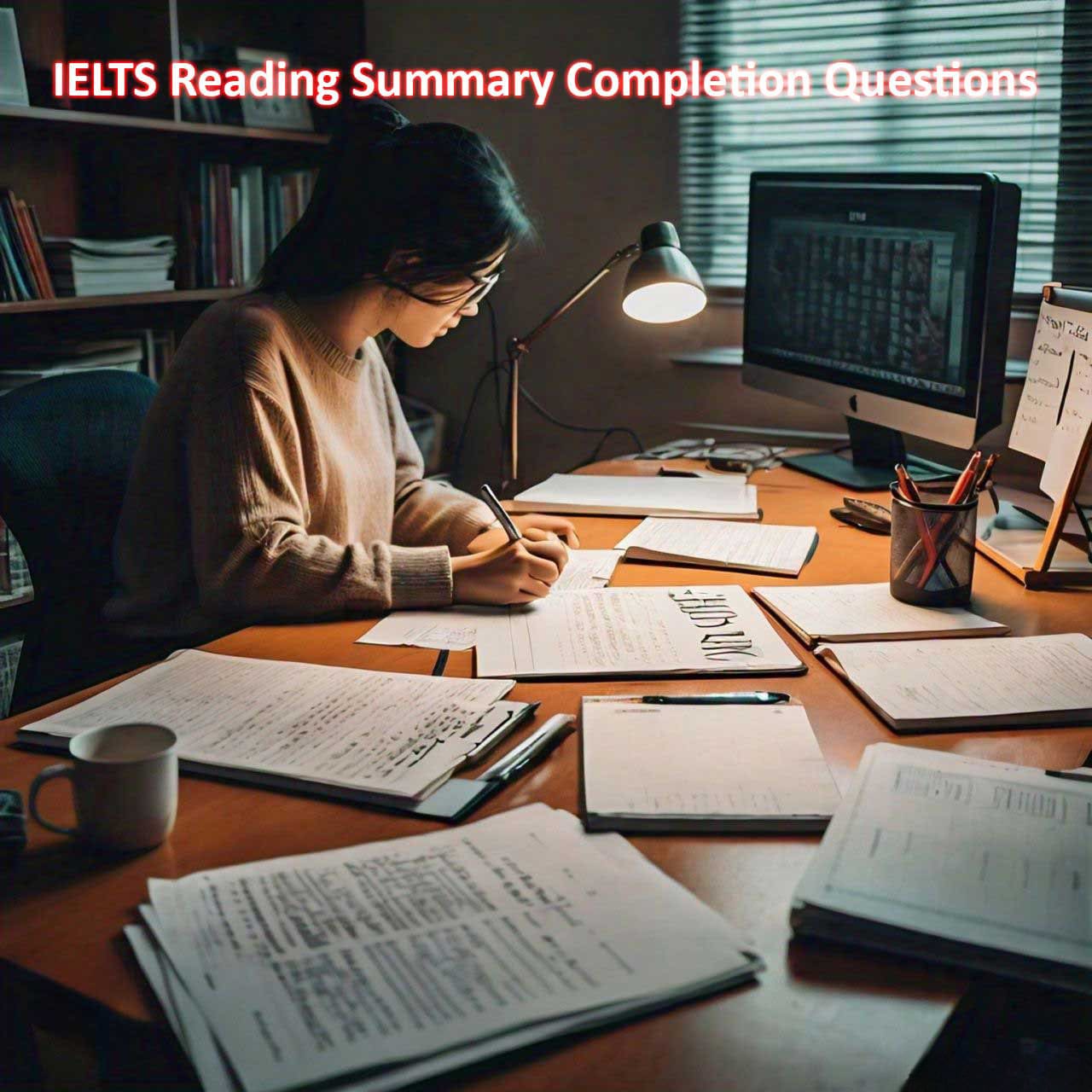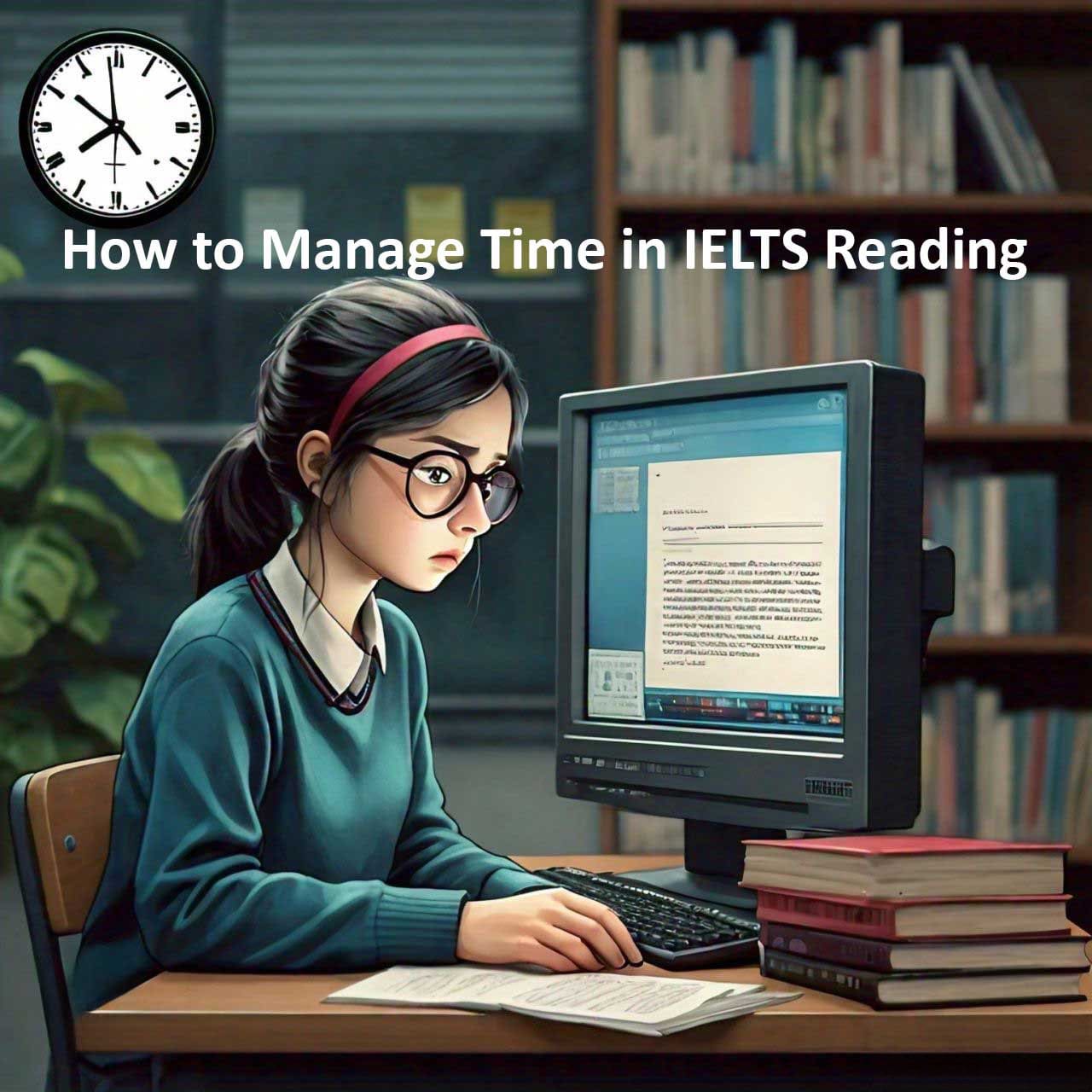The IELTS Reading section can be daunting, especially when faced with Sentence Completion Questions. These questions test not only your comprehension skills but also your ability to identify key information within a time limit. However, with the right approach, you can tackle these questions effectively and confidently. This blog post provides five essential tips to master IELTS Reading Sentence Completion Questions, complete with practical examples and useful resources.
Table of Contents
Understanding IELTS Reading Sentence Completion Questions
Sentence Completion Questions require you to fill in the blanks in a given sentence with words from the passage. The answers must match the exact wording in the text, so attention to detail is critical. These questions assess your ability to:
- Locate specific information in the passage.
- Understand context and meaning.
- Use keywords to guide your search.
5 Essential Tips to Tackle Sentence Completion Questions
1. Read the Instructions Carefully
One of the most common mistakes test-takers make is neglecting to read the instructions thoroughly. Sentence Completion Questions often specify a word limit, such as “Write no more than three words.” Ignoring this can lead to incorrect answers.
Example: If the instruction says “Write no more than two words,” and you write “economic growth rate,” your answer will be marked wrong, even if it is correct in meaning.
Tip: Highlight or underline key instructions to avoid mistakes.
2. Skim the Passage First
Before diving into the questions, skim the passage to get a general understanding of the topic and structure. Pay attention to headings, subheadings, and keywords. This will help you locate relevant sections more quickly when answering questions.
Example: If the passage is about renewable energy, look for sections discussing specific types like solar or wind energy. These sections are likely to contain answers to related questions.
3. Identify Keywords in the Question
Keywords in the question act as signposts, guiding you to the right part of the passage. Look for:
- Names (e.g., Albert Einstein)
- Numbers (e.g., 20%, 1995)
- Specific terms (e.g., renewable energy, economic growth)
Once you’ve identified keywords, scan the passage to find matching words or synonyms.
Example: Question: “The primary benefit of solar power is _______.” Keyword: “primary benefit” Scan the passage for phrases like “main advantage” or “key benefit.”
4. Understand the Context
It’s not enough to locate the keyword—you must also understand the surrounding context. Sometimes, the answer will be implied rather than directly stated. Reading the sentence before and after the keyword can provide valuable clues.
Example: Passage: “Solar power is not only cost-effective but also reduces greenhouse gas emissions.” Question: “The primary benefit of solar power is _______.” Answer: “reduces greenhouse gas emissions.”
5. Practice Paraphrasing Skills
IELTS Reading passages often use synonyms or paraphrased phrases instead of repeating the exact wording from the question. Improving your paraphrasing skills can help you identify answers more effectively.
Example: Question: “The _______ of the policy led to economic growth.” Passage: “The implementation of the policy boosted economic development.” Answer: “implementation”
Common Challenges and How to Overcome Them
1. Overlooking Small Words
Missing small words like “a,” “the,” or “not” can change the meaning of your answer.
Tip: Double-check your answers to ensure you’ve included all necessary words.
2. Running Out of Time
Time management is crucial in the IELTS Reading section. Allocate no more than 20 minutes per passage, and move on if you’re stuck on a question.
Tip: Practice with timed mock tests to improve your speed.
3. Misinterpreting Paraphrased Information
Paraphrasing can make answers harder to spot. Familiarize yourself with common synonyms and practice identifying paraphrased ideas.
Resource: Check out Quizlet’s IELTS Vocabulary Sets for paraphrasing practice.
Example Passage and Practice Question
Passage Excerpt: “Renewable energy sources, such as solar and wind power, are becoming increasingly popular due to their ability to reduce reliance on fossil fuels. In particular, solar power is widely recognized for its affordability and environmental benefits.”
Question: “Solar power is known for its affordability and _______.”
Answer: “environmental benefits”
Additional Resources for Practice
To further enhance your skills, consider using the following resources:
- British Council IELTS Practice Tests
- Cambridge IELTS Books
- Road to IELTS
- IELTS Liz Sentence Completion Tips
- More Topics on IELTS Reading
Final Thoughts
Mastering IELTS Reading Sentence Completion Questions requires a combination of strategy, practice, and focus. By following the tips outlined in this post, you can improve your accuracy, save time, and boost your overall IELTS Reading score.
Remember, preparation is key when tackling IELTS Reading Sentence Completion Questions. Dedicate time to practicing with authentic materials that mirror the test format, focus on building your vocabulary, and develop a clear strategy specifically for answering sentence completion questions. With consistent effort and practice, you’ll be well on your way to success.
Good luck with your IELTS preparation!



